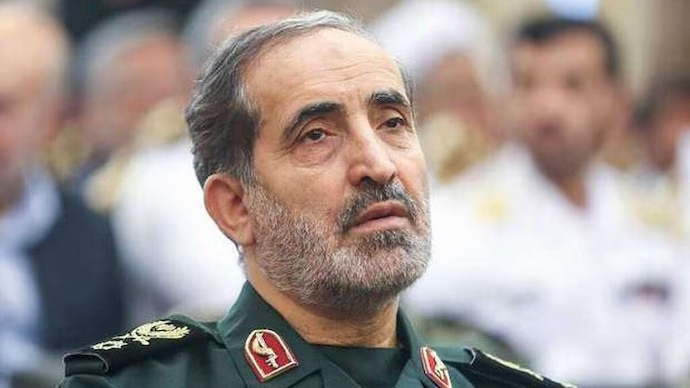
Amid an escalating shadow war, Israel has officially acknowledged the targeted killing of Iran’s wartime chief of staff, General Reza Tabrizi, in what officials describe as ‘precision elimination of high-value threats.’ This was the 11th Iranian general killed in just five days and has rattled Tehran’s inner circle of elite military leadership as tensions between the two historic adversaries are nearing boiling point.
Israeli intelligence sources verified the strike and described the operation as a “strategic accomplishment.” The government of Iran has remained remarkably quiet, not denying or confirming the death of General Tabrizi, who is widely known to be responsible for the coordination of Iran’s foreign paramilitary operations in Syria, Lebanon, and Yemen.
Senior Israeli defense officials, who spoke anonymously, said the strike took place late Monday night along the Syrian border town of Abu Kamal, where Tabrizi was said to be meeting with top Quds Force officials. A drone operated by Israel reportedly launched two missiles that hit a convoy of black SUVs on a dirt road, targeting a caravan is par for the course for Israel’s pinpoint airstrike operations inside its borders.
U.S. satellite surveillance subsequently confirmed movement in the vicinity, and fire or heat signatures consistent with a missile strike, though the Pentagon has not provided any official comment.
General Tabrizi was seen as Iran’s de facto commander of foreign conflict theaters, particularly in wartime. He served directly under the Islamic Revolutionary Guard Corps (IRGC) High Command, and many viewed him as a protégé of Qassem Soleimani, the premier Quds Force general, who was killed by a U.S. drone strike in 2020.
Tabrizi was said to be the orchestrator of Iranian military assistance for Houthi rebels in Yemen, a counselor to Hezbollah in Lebanon, and also involved with the effort to re-establish Iran’s position in post-war Syria. He was considered an intelligence community opinion as one of the last “field veterans” who had actual war strategy experience.
If confirmed, his death is seen as the most significant Iranian military death since Soleimani.
While there is substantial speculation in the Middle East and Western intelligence services, Tehran has not formally confirmed the death of Tabrizi, or the other 10 generals the reports say were killed in targeted attacks over the past week.
To date, Iranian state media has not covered the attacks, and the IRGC indicated it had scheduled a press brief for the following Tuesday, which was hastily cancelled. One journalist, with the semi-official Tasnim News Agency, foolishly tweeted:
These darkening clouds and decreasing communications have intensified speculation about profound internal volatility within Iranian leadership, including leaks to foreign intelligence, internal rivalries, and possibly betrayal at the highest ranks.
While there is substantial speculation in the Middle East and Western intelligence services, Tehran has not formally confirmed the death of Tabrizi, or the other 10 generals the reports say were killed in targeted attacks over the past week.
To date, Iranian state media has not covered the attacks, and the IRGC indicated it had scheduled a press brief for the following Tuesday, which was hastily cancelled. One journalist, with the semi-official Tasnim News Agency, foolishly tweeted: These darkening clouds and decreasing communications have intensified speculation about profound internal volatility within Iranian leadership, including leaks to foreign intelligence, internal rivalries, and possibly betrayal at the highest ranks.
The new wave of assassinations and airstrikes comes as Iran and Israel are acting to engage each other directly, with battles extending into Lebanon, Syria, Iraq, and the Red Sea.
Earlier in the week, Israeli defense forces (IDF) conducted major pre-emptive strikes against Hezbollah ordnance depots in southern Lebanon, while Iranian-supported Houthi rebels in Yemen took responsibility for unmanned aerial vehicle (UAV) attacks on Israeli merchant vessels in the Arabian Sea.
U.S. CENTCOM raised its alert level with “unprecedented levels of military mobilization” on both sides.
At this time, Israel is showing no indication of slowing its targeted killing efforts against Iranian commanders, whom it is blaming for establishing a regional “axis of terror.” Rather than calming matters, Iran’s quiet has only exacerbated global anxiety.
The world looks on nervously, with the Middle East standing on the brink of a new iteration of hybrid warfare, potentially being waged not just on battlefields, but in shadows, whispers, and flashes of fire.
Keep reading questiqa.com

